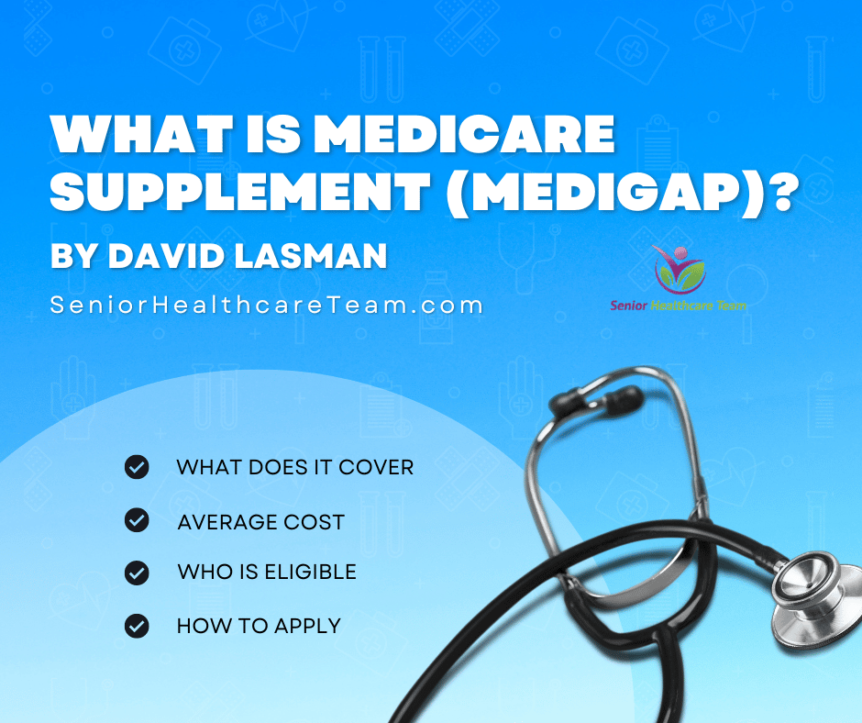Retirement signifies a new chapter in life, and for many seniors, navigating the complexities of healthcare becomes a top priority. In the United States, Medicare provides essential coverage for individuals aged 65 and older, but it doesn’t cover all healthcare expenses. This is where Medicare Supplement Insurance, also known as Medigap, steps in. As we step into 2024, understanding how retirees can make the most of Medicare Supplement Insurance is crucial for ensuring comprehensive and affordable healthcare coverage.
Essential Questions to Ask Your Medigap Agent
As you embark on the journey of securing the right Medicare Supplement Insurance policy, commonly known as Medigap, it’s crucial to be well-informed. Choosing the right plan can significantly impact your healthcare coverage and financial well-being. To ensure you make an informed decision, here are some essential questions to ask your Medigap agent.
Understanding Medigap Coverage: What Is It Used For?
Navigating the complex world of healthcare and insurance can be a daunting task, especially as you approach retirement age. Medicare is a valuable federal health insurance program that covers many healthcare expenses, but it doesn’t cover everything. This is where Medigap coverage, also known as Medicare Supplement Insurance, comes into play. In this article, we’ll explore what Medigap coverage is, how it works, and what it is used for to help seniors bridge the gaps in their healthcare coverage.
Exploring the 5 Most Obscure Medicare Supplement Insurance FAQs
Medicare Supplement Insurance, also known as Medigap, is designed to help Medicare beneficiaries cover some or all of the out-of-pocket costs that original Medicare doesn’t fully pay for. While many people are familiar with the basics of Medicare, there are several lesser-known aspects and FAQs about Medicare Supplement Insurance that often go unnoticed. In this article, we will delve into the five most obscure Medicare Supplement Insurance FAQs to shed light on these often overlooked aspects of healthcare coverage.
The 10 Most Important Medicare Supplement Insurance FAQs
Navigating the complex landscape of healthcare insurance can be a daunting task, especially when it comes to Medicare and its various components. Medicare Supplement Insurance, also known as Medigap, is a type of insurance designed to fill the gaps in traditional Medicare coverage. To help you better understand this crucial insurance, we’ve compiled a list of the 10 most important frequently asked questions (FAQs) about Medicare Supplement Insurance.
The Benefits of Medigap When Used in Conjunction with Original Medicare
While Original Medicare is an invaluable program, it does not cover everything. Beneficiaries are still responsible for certain costs, including deductibles, copayments, and coinsurance. Additionally, there is no cap on annual out-of-pocket spending, which can lead to financial strain for those with significant medical needs.
What is Medicare Supplement (Medigap)?
As you approach age 65, navigating Medicare and all of its parts and plans may sound daunting, but it can be easier than you think. Original Medicare contains two parts: Part A and Part B. Medicare Part A covers hospital care, skilled nursing facility and hospice fees, and is usually premium-free. Medicare Part B covers medical and preventive services, as well as some medical equipment, for which there is a monthly premium (typically deducted from your Social Security payments).
More 2023 Medicare Supplement Insurance (Medigap) FAQ’s Answered
Medicare Advantage is a type of private insurance that is a substitute for Medicare Part A and Part B with more restrictions, risks and limitations.
Medicare Supplement plans, also known as Medigap plans, can be purchased to fill specific gaps in Original Medicare coverage. They’re sold by private insurance companies but are regulated to provide the same standard benefits across providers.
The Indispensability of Medigap Plan G: Ensuring Comprehensive Healthcare Coverage
As individuals approach the age of 65, navigating the complexities of Medicare can become a daunting task. While Medicare Part A and Part B provide essential coverage for hospital stays and medical services, they do not cover all expenses, leaving beneficiaries vulnerable to potential out-of-pocket costs.
Essential Questions for Senior Citizens to Ask Their Agent About Medicare Supplement Insurance
As individuals approach their retirement years, health becomes an important aspect of their lives. With the increasing costs of medical services, having comprehensive health insurance is crucial to ensure financial security and peace of mind. For senior citizens relying on Medicare, understanding the nuances of Medicare Supplement Insurance, or Medigap, becomes paramount.










